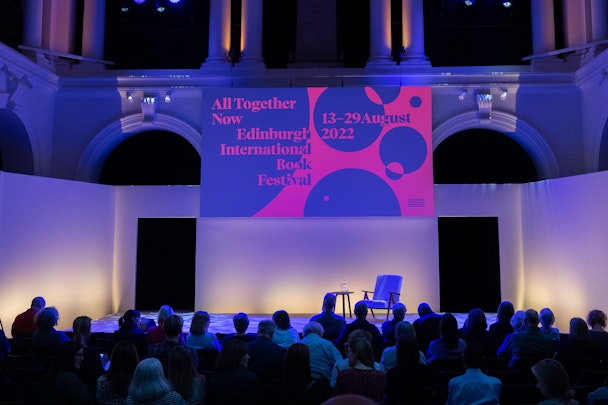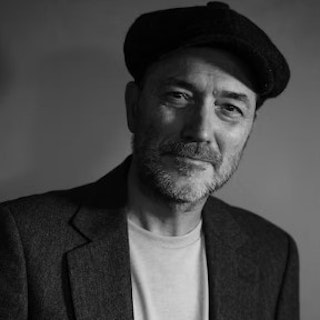Green boycotts hurt arts funding, just ask the Edinburgh International Book Festival
Gordon Young, editor-in-chief and co-founder of The Drum, explores how one book festival boycott highlights coming trouble for event sponsors still invested in fossil fuels.

A full Baillie Gifford Sculpture Court in 2022 / Edinburgh International Book Festival/Roberto Ricciuti
Top authors including Zadie Smith, Katherine Rundell and Ali Smith have called the Edinburgh International Book Festival to drop its headline sponsor Baillie Gifford.
At issue is the investment firm's interest in oil and gas. An open letter, signed by 50 writers, insists Baillie Gifford stops investing in fossil fuel before the 2024 event. If the firm fails to comply, it calls on the festival to find an alternative sponsor.
Advertisement
If the demands are not met, it then asks all authors to boycott the event.
The row comes after climate activist Greta Thunberg pulled out of her scheduled appearance accusing Baillie Gifford of greenwashing. But this later chapter in the story of cancel culture does seem an own goal - that may threaten the corporate sponsorship market generally.
That is why it is good to see the festival director Nick Barely put up a robust defence when he responded, “We fully acknowledge your concerns about the devastating impact of fossil fuel exploitation on the climate: as individuals and as a charity we firmly agree,” he wrote, “For these reasons, we promise to think about your letter carefully. The last thing we want is to let anyone give the impression we are on opposite sides.
“We’d also like to share with you the reasons why we have accepted this sponsorship agreement. Like all arts organizations in the UK, we wouldn’t have enough funds to operate without private sponsorship. We looked very closely at the work of Baillie Gifford and it seems to us that they are investing in companies that are seeking to resolve the crisis.”
Advertisement
The Baillie Gifford position is nuanced. On one hand, it does invest around 2% of its clients' money in companies related to fossil fuels. But it also holds investments in companies that are leading the way in alternative energy.
It is only rabid purists who would categorize Baillie Gifford as a climate villain. But the reality is, if even this sort of well-run business can be canceled, then other big corporates might regard arts sponsorship as a risk not worth taking. It doesn't need to be said what that could do to the world of art and culture.
They’re already signs some will not engage in the climate change conversation. Last year the World Economic Forum found that 25% of businesses do not plan to publish their climate goals.
Suggested newsletters for you
Green-hushing, as it is called, is a growing trend, where brands do not want to talk about their climate policy generally for fear of getting called out for greenwashing. Even if they are putting in the work and make progress.
Baillie Gifford's experience in Edinburgh suggests they these concerns are rational.
Let’s hope it can be persuaded to continue to support the festival nevertheless, and the authors come to see the proposed boycott as an act of self-harm.
The stakes are high. The point of these events is to stimulate conversations about the big challenges facing society. But without sponsorship, the talk would stop, and a hush would descend.
-
Business must stop ‘greenhushing’ and speak up on sustainability
-
The climate debate has become a bickering kindergarten. It’s time to grow up

